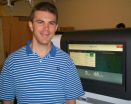(Press-News.org) Berlin, 19th October 2014 What's in a name? Doctors have found that the name of the drug you are prescribed significantly influences how the patient sees the treatment. Now in a significant shift, the world's major psychiatry organisations are proposing to completely change the terminology of the drugs used in mental disorders shifting it from symptom based (e.g. antidepressant, antipsychotic etc.) to pharmacologically based (e.g. focusing on pharmacological target (serotonin, dopamine etc.) and the relevant mode of action). This will mean that patient will no longer have the confusion of being prescribed a drug for what appears to be an unrelated condition, but also means that drug names will be more understandable to doctors.
The new terminology is being presented to international clinicians at the European College of Neuropsychopharmacology conference in Berlin. This international launch marks the start of a process of discussion and negotiation between academics, clinicians, pharmaceutical companies, and regulatory bodies. The rigorous nature of the new nomenclature means that this can be supported by an app, which will assist clinicians in making the correct treatment choices. This beta 1 version of this app will be also available in Berlin.
In psychiatry, drug names can cause more problems than they solve; for example, a patient may be being treated for anxiety, and yet may be prescribed an "antidepressant" or an "antipsychotic", and the stigma of being prescribed an antipsychotic can make the patient even more anxious. Often this means that patients stop taking the drug for fear of the association with the different disease.
The terminology of the drugs used by Neuropsychopharmacologists (mostly psychiatrists looking at how drugs affect the mind) is based on a classification developed in the 1960's. This often leads to confusion in both patients, and a lack of clarity in doctors.
As Professor Josef Zohar (Tel Aviv, Israel), leading the international nomenclature project said:
"As in many fields, what we know about drugs has evolved enormously since the 1960s, but the names we use to describe these drugs have not evolved in 50 years. As an analogy, I mostly use my smartphone to type SMS text messages, yet I would not call it a "typewriter", as I would have in the 1960's; the names need to reflect our contemporary knowledge. If this is true of electronics, it is certainly true of medicines".
Most drugs have more than one effect, and this can lead to great confusion in patients. For example, some 'antipsychotics' are used to treat depression (somewhat like Aspirin is taken for headaches, but also to help prevent heart disease). So the Joint Taskforce on Nomenclature has agreed that the nomenclature of drugs used in mental health need to reflect how the drugs work, rather than any one single use (This is what already happens in some fields such as hypertension).
Professor Zohar continued:
"This is more than just a name change. This will change the way we talk about medications, the way we use medications and the way we explain to our patients why we are selecting the specific medications for them. We can also use the new naming system to help a clinician make informed decisions. We are proposing that the naming system will have 4 components or 4 axes".
Axis 1 describes pharmacological target and mode of action
Axis 2 describes approved indications – what the drug is used for
Axis 3 describes efficacy and major side effects
Axis 4 gives the neurobiological description.
As an example the drug fluoxetine (also known as Prozac, etc.) is currently classified as an antidepressant, but is also used for bulimia and other indications. Obviously, suffering from bulimia and being given an antidepressant is potentially confusing. Under the new classification fluoxetine would be described as follows:
Class/ mechanism: Serotonin, reuptake inhibitor
Indications: Major depressive disorder, obsessive compulsive disorder, bulimia nervosa, panic disorder (and others)
Efficacy: Improves symptoms of depression and anxiety and reduces compulsive behaviour and obsessional thoughts.
Side effects; GI symptoms, anxiety, changes in sleep early in treatment, sexual dysfunction
Neurobiological description: Neurotransmitter actions / Physiological / Brain Circuits are all listed in the new classification.
Note: the above points 1-4 are not the complete listing for Fluoxetine, please see the Nomenclature book for more details.
American College of Neuropsychopharmacology representative to the expert group, Professor David Kupfer (University of Pittsburgh), said:
"This change in terminology represents a major shift in the way which clinicians, and their patients, will think about the drugs they use. This new system is being launched at the ECNP in Berlin, so there is a long period of negotiation and discussion to come before we get complete agreement. Nevertheless, this will mean a real change in the way we talk about the drugs used in psychiatry and neuroscience".
INFORMATION:
The expert group comprises representatives;
European College of Neuropsychopharmacology
International College of Neuropsychopharmacology
American College of Neuropsychopharmacology
Asian College of Neuropsychopharmacology
International Union of Basic and Clinical Pharmacology
Scientists at The University of Manchester hope a major breakthrough could lead to more effective methods for detoxifying dangerous pollutants like PCBs and dioxins. The result is a culmination of 15 years of research and has been published in Nature. It details how certain organisms manage to lower the toxicity of pollutants.
The team at the Manchester Institute of Biotechnology were investigating how some natural organisms manage to lower the level of toxicity and shorten the life span of several notorious pollutants.
Professor David Leys explains the research: ...
Kansas City, MO - While megakaryocytes are best known for producing platelets that heal wounds, these "mega" cells found in bone marrow also play a critical role in regulating stem cells according to new research from the Stowers Institute for Medical Research. In fact, hematopoietic stem cells differentiate to generate megakaryocytes in bone marrow. The Stowers study is the first to show that hematopoietic stem cells (the parent cells) can be directly controlled by their own progeny (megakaryocytes).
The findings from the lab Stowers Investigator Linheng Li, Ph.D., described ...
At least 2 percent of people over age 40 and 5 percent of people over 70 have mutations linked to leukemia and lymphoma in their blood cells, according to new research at Washington University School of Medicine in St. Louis.
Mutations in the body's cells randomly accumulate as part of the aging process, and most are harmless. For some people, genetic changes in blood cells can develop in genes that play roles in initiating leukemia and lymphoma even though such people don't have the blood cancers, the scientists report Oct. 19 in Nature Medicine.
The findings, based ...
CHICAGO – Oct. 19, 2014 – The first tear duct implant developed to treat inflammation and pain following cataract surgery has been shown to be a reliable alternative to medicated eye drops, which are the current standard of care, according to a study presented today at AAO 2014, the 118th annual meeting of the American Academy of Ophthalmology. The device, known as a punctum plug, automatically delivers the correct amount of postoperative medication in patients, potentially solving the issue of poor compliance with self-administering eye drops.
After cataract ...
BETHESDA, MD – A child's genetic makeup may contribute to his or her mother's risk of rheumatoid arthritis, possibly explaining why women are at higher risk of developing the disease than men. This research will be presented Tuesday, October 21, at the American Society of Human Genetics (ASHG) 2014 Annual Meeting in San Diego.
Rheumatoid arthritis, a painful inflammatory condition that primarily affects the joints, has been tied to a variety of genetic and environmental factors, including lifestyle factors and previous infections. Women are three times more likely ...
BETHESDA, MD – Scientists studying birth defects in humans and purebred dogs have identified an association between cleft lip and cleft palate – conditions that occur when the lip and mouth fail to form properly during pregnancy – and a mutation in the ADAMTS20 gene. Their findings were presented today at the American Society of Human Genetics (ASHG) 2014 Annual Meeting in San Diego.
"These results have potential implications for both human and animal health, by improving our understanding of what causes these birth defects in both species," said Zena ...
Geneva, Switzerland – 19 October 2014: Women are more likely to develop anxiety and depression after a heart attack (myocardial infarction; MI) than men, according to research presented at Acute Cardiovascular Care 2014 by Professor Pranas Serpytis from Lithuania.
Acute Cardiovascular Care is the annual meeting of the Acute Cardiovascular Care Association (ACCA) of the European Society of Cardiology (ESC) and takes place 18-20 October in Geneva, Switzerland.
Professor Serpytis said: "The World Health Organization predicts that by 2020 depression will be the second ...
BETHESDA, MD – Human geneticists have discovered that a region of the genome associated with autism contains genetic variation that evolved in the last 250,000 years, after the divergence of humans from ancient hominids, and likely plays an important role in disease. Their findings were presented today at the American Society of Human Genetics (ASHG) 2014 Annual Meeting in San Diego.
Researchers at the University of Washington analyzed the genomes of 2,551 humans, 86 apes, one Neanderthal, and one Denisovan. They closely examined a region of human chromosome 16 ...
Berlin, 19th October 2014 All humans have a natural opioid system in the brain. Now new research, presented at the ECNP Congress in Berlin, has found that the opioid system of pathological gamblers responds differently to those of normal healthy volunteers. The work was carried out by a group of UK researchers from London and Cambridge, and was funded by the Medical Research Council. This work is being presented at the European College of Neuropsychopharmacology congress in Berlin.
Gambling is a widespread behaviour with about 70% of the British population gambling occasionally. ...
Berlin, 19th October 2014 Psychological stress and stress-related psychiatric disorders are associated with increased risk for aging-related diseases, but the molecular mechanisms underlying this relation are unknown. Understanding these mechanisms may contribute to the development of targeted preventive strategies and new or improved treatments for these devastating diseases. This work is presented at the European College of Neuropsychopharmacology congress in Berlin.
Now an international group of researchers from Germany and the US has found that both ageing and depression ...


